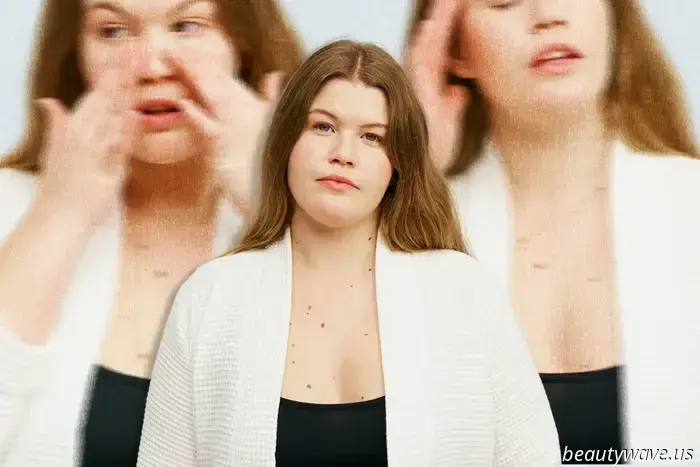
68% of Women Overlook These Hazardous Symptoms
I recently celebrated my 30th birthday, but my menstrual irregularities (or absence of periods these past few months) felt like they were pushing me into a different decade (could this really be a sign of perimenopause?). I attributed it to my intense workout routine, hoping to coax my cycle back to normal. I was too caught up in the excitement of my new relationship with my then-boyfriend (now husband), advancing in my career, and setting up my apartment in LA—essentially navigating adulthood—to make an appointment with my OB-GYN about it; I figured I’d get to it eventually. However, the truth is I was also delaying the check-up due to a fear of confronting one of my biggest worries: the possibility of being unable to have kids. (Spoiler alert: One doctor wrongly diagnosed me with PCOS, and thankfully, the narrative I had constructed was incorrect. I now have a healthy, thriving baby girl.) It turns out that I'm not alone in neglecting health concerns, whether it’s driven by anxiety, the busyness of life, or society normalizing these issues.
A recent study by hormonal health company Mira reveals a significant health crisis: 68 percent of women do not seek medical help even when they display symptoms that could point to serious hormonal disorders—many of which can lead to significant health issues if untreated. The survey of 2,250 women in the U.S. revealed that:
- 73 percent overlook irregular menstrual cycles, which may indicate PCOS, thyroid problems, or even endometrial cancer.
- 76 percent disregard ongoing fatigue, a potential indication of metabolic disorders, adrenal fatigue, or hypothyroidism.
- 77 percent fail to acknowledge signs of menopause transition, raising their risk for osteoporosis, heart disease, and cognitive decline.
- 91 percent ignore issues with their skin and hair, which could signal underlying conditions such as PCOS or serious hormonal imbalances that impact fertility and metabolism.
If that’s not a signal that women deserve better than to endure silently, I don’t know what is. Below, hormone health specialists discuss the hormonal health symptoms we should pay attention to, why there’s a disconnect, and how we can bridge those gaps.
Experts Mentioned
At The Everygirl, we believe wellness advice should be based on accurate, scientific information, allowing our readers to make informed health decisions. That's why we prioritize consulting credible experts to ensure every piece of content is reliable and empowering.
MEET THE EXPERT
DR. ALI CHAPPELL, PhD, MS, RD
Dr. Chappell is a certified reproductive endocrinologist and the founder and CEO of Lilli Health. With a strong dedication to advancing women’s health, she has committed her career to providing accessible, evidence-based care for those dealing with PCOS and other reproductive issues.
MEET THE EXPERT
DR. MICHELLE SANDS
Dr. Sands is a licensed naturopathic physician, a holistic menopause specialist, and the founder and CEO of GLOW Natural Wellness. With years of clinical experience and a focus on integrative medicine, she aims to empower women through their hormonal changes naturally and confidently.
MEET THE EXPERT
DR. AMBER WHEELER, MD
Dr. Wheeler is a certified endocrinologist with extensive knowledge of hormonal health and metabolic conditions. As an advisor for hey freya, she shares her clinical expertise and guides the brand’s commitment to evidence-based wellness solutions.
What Symptoms Might Suggest Serious Hormonal Disorders?
Hormones regulate various bodily functions, from mood and digestion to sleep and libido. When they’re disrupted, there can be clear warning signs that indicate there’s more at play than just common triggers like stress, poor sleep, or overexercising. “Hormonal imbalances can involve more than just mood swings or weight fluctuations; they can indicate significant dysfunction that, if unaddressed, can escalate into serious health troubles,” stated Dr. Michelle Sands, a naturopathic physician, holistic menopause expert, and founder of GLOW Natural Wellness. According to our experts, here are critical symptoms to watch for:
Irregular or missing periods
While many women experience irregular cycles, particularly just after puberty, irregularities can suggest conditions like polycystic ovary syndrome (PCOS), thyroid dysfunction, or premature ovarian insufficiency (POI). “Typically, a normal cycle ranges from 21 to 35 days; anything outside that is generally considered abnormal,” noted Dr. Ali Chappell, PhD, MS, RD, a board-certified reproductive endocrinologist and CEO of Lilli Health. “If your cycle consistently exceeds 90 days, it’s crucial to consult your healthcare provider, as this may heighten the risk of endometrial cancer.” Dr. Sands added that leaving these conditions untreated can result in increased risks for infertility, osteoporosis, cardiovascular disease, and metabolic disorders.
Severe fatigue
If I voiced positive affirmations as frequently as I




Other articles
 10 Tricks Wellness Girls Always Employ When Grocery Shopping
benefits for both your body and your budget
10 Tricks Wellness Girls Always Employ When Grocery Shopping
benefits for both your body and your budget
 How Danessa Myricks Established Her Name-Sake Beauty Brand
The Second Life podcast features an interview with Danessa Myricks, the founder of Danessa Myricks Beauty.
How Danessa Myricks Established Her Name-Sake Beauty Brand
The Second Life podcast features an interview with Danessa Myricks, the founder of Danessa Myricks Beauty.
 My friend desired to exude the fragrance of French high society, so I recommended these 10 discounted perfumes to her.
These brands are rarely available at a discount.
My friend desired to exude the fragrance of French high society, so I recommended these 10 discounted perfumes to her.
These brands are rarely available at a discount.
 In Paris, fashionable women favor this classic trend instead of bombers and blazers.
Here are 13 items to purchase.
In Paris, fashionable women favor this classic trend instead of bombers and blazers.
Here are 13 items to purchase.
 Wait a minute! Here are 5 essential Nordstrom items that will undoubtedly enhance your spring outfits.
Browse my favorite essentials from Nordstrom for spring.
Wait a minute! Here are 5 essential Nordstrom items that will undoubtedly enhance your spring outfits.
Browse my favorite essentials from Nordstrom for spring.
 Jennifer Lawrence has already invested in this summer’s most essential bag color.
The trend of red bags is here to stay, much like Jennifer Lawrence. Click through to see how the actress styled hers here.
Jennifer Lawrence has already invested in this summer’s most essential bag color.
The trend of red bags is here to stay, much like Jennifer Lawrence. Click through to see how the actress styled hers here.
68% of Women Overlook These Hazardous Symptoms
Experts advise paying attention to warning signs such as irregular or missed periods, digestive problems, and sudden skin changes.
